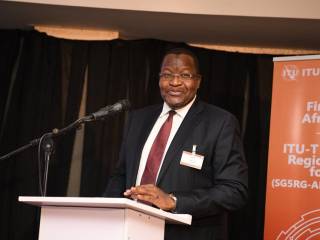The Executive Vice Chairman (ECV/CEO) of the NCC, Prof. Umar Garba Danbatta, dropped the hint yesterday at the opening session of the First Digital Africa Week organized by the International Telecommunication Union (ITU) and hosted by the NCC in Abuja.
Professor Danbatta told the gathering of global Information and Communications Technology (ICT) experts, that the NCC framework for broadband infrastructure has led to the licensing of six infrastructure companies (Infracos) for North East, North West, South East, South West, South-South and Lagos.
The Process for licensing a seventh infraco for the North Central including the Federal Capital Territory, Abuja, has been concluded and the licence ready for award very soon.
The infracos will deploy metro and intercity fibre and broadband point of access with a minimum capacity of 10 gigabits per second (10 Gbps) across the 774 Local Government Areas of Nigeria.
“With the development of Smart Cities Key Performance Indicators (KPIs) by the ITU, it is imperative to have a pervasive and ubiquitous broadband infrastructure across all our towns and cities to achieve the objectives of making them Smart,” Danbatta said.
Prof. Danbatta told the experts with excitement that “Nigeria has not only achieved but exceeded the 30% penetration target set by the National Broadband Plan (NBP) (2013 – 2018) and at the end of July 2019, our broadband penetration stood at 33.72%,” he further submitted, adding that the NCC will continue to work hard to ensure that all citizens of Nigeria have access to affordable broadband connection irrespective of location.

